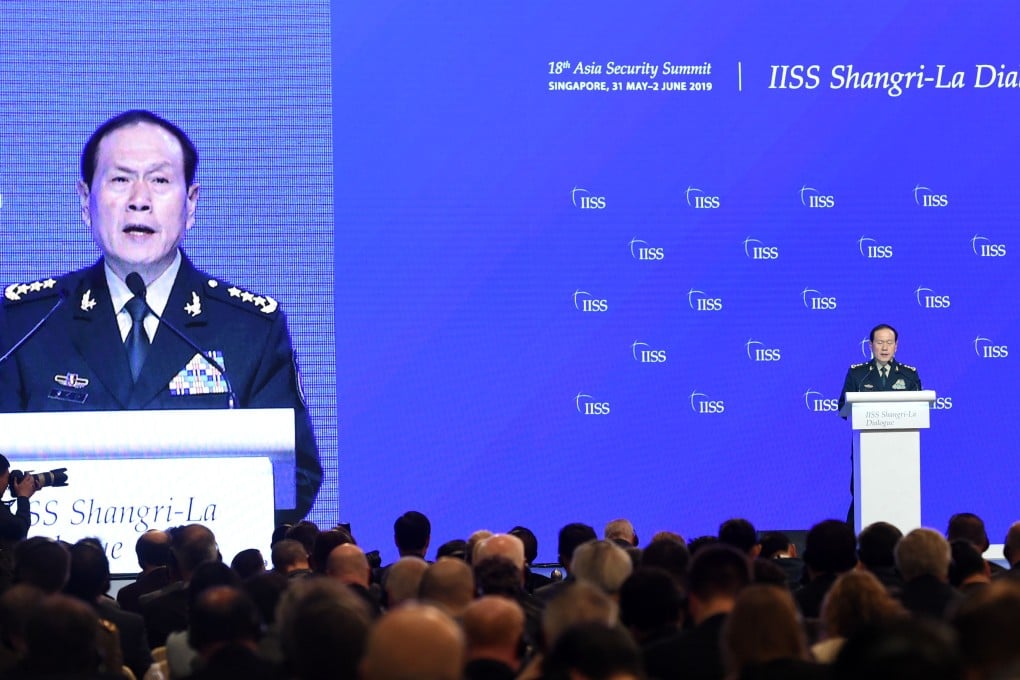China sends message at Shangri-La Dialogue amid tight media control
- Defence minister makes strong statements about Taiwan and South China Sea at regional security forum but format is strictly controlled
- Chinese ‘negotiated very hard’ with organisers to manage Wei Fenghe’s appearance at the event

The three-day forum, which ended on Sunday, was this year seen as an important platform for China to send a message as its rivalry with the United States escalates well beyond trade.
Beijing upgraded its representation at Asia’s biggest security forum with a delegation led by Defence Minister General Wei Fenghe – the highest-profile team China has sent to the gathering in Singapore – aiming to promote its position and seek support from neighbours.
A Chinese delegate, who declined to be named, said Wei’s attendance showed Beijing wanted to articulate its position to the international community at a time of heightened tensions with Washington.
On Sunday, Wei issued a stern warning to “external forces” that fostered the idea of independence for Taiwan and said China’s construction of man-made islands in the South China Sea was its “legitimate right”.
His message was clear but tough, said Shahriman Lockman, a senior analyst with the Foreign Policy and Security Studies Programme of the Institute of Strategic and International Studies in Malaysia, adding that the international audience may not be sympathetic towards Beijing’s stance on Taiwan.